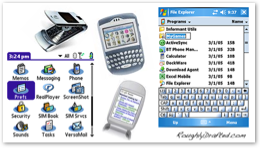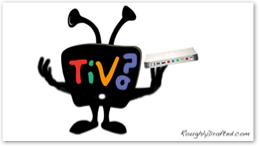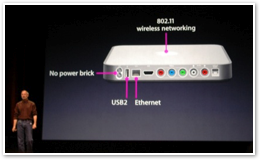
iPod, iPhone, iTV: How Apple's New Platform Works
Apple's iPod is a runaway hit, but will any of that success translate into different product categories? Some analysts seem to think it won't, but there are significant reasons why Apple is poised to repeat the same iPod success in new arenas. It has little to do with music playback, and instead relates to the integrated network of services Apple has built to support the iPod.
The Simple iPod
The experience presented by the iPod isn't confined to the device itself. A major part of the iPod's success is in how it delegates much of its complexity to iTunes. Among other things, its integration with iTunes means that the mechanics of setting up playlists and managing firmware updates is all handled by a desktop computer.
This offloading of complexity is increasing. In iTunes 7, Apple completed the move of all iPod synching to iTunes, making it the central place to set up all calendar, contacts and notes synching.
It also introduced a secure method for buying and installing software, disguised as iPod games. That makes iTunes not just a jukebox app, but also:
-
•an online store capable of downloading commercial software, paid content, and free podcast content;
-
•an online rating and comment system for downloadable content;
-
•a simple system for delivering hardware updates;
-
•a way to manage synchronized data between devices;
All of iTunes' features work to make the iPod very simple. It doesn't need extra buttons and menus to configure content, nor does it need to enforce its own DRM the way devices trying to sell exploding media subscriptions do.
That leaves the iPod itself a display and playback device, requiring less processing power and less software complexity. That simplicity also contributes to a more stable and reliable system. It lacks the common crashing and rebooting that customers experience with more complex and featured devices, such as the newer Palms and WinCE devices.

Just by itself, iTunes solves the four problems outlined in Device Problems In Search of a Solution:
-
•Consistent User Interface
-
•Consistent Stability
-
•Consistent Data Sync
-
•Consistent and Fair DRM
The iTV
Apple's announced wireless set top box isn't a new Tivo. Instead, it promises to integrate with Tivos and other DVR devices to play back content to a television or home theater setup.
It's also not a game console, but will clearly have no problem playing the same games and content that can already play on the iPod. It also offers a lot of potential for new games that make use of a larger display and other interactive content.
The iTV is an Airport AV: a wireless way to share and access content. Its integration with iTunes will offer it similar benefits to the iPod:
-
•a free source for accessing archives, news, trailers, and other free and alternative podcast content;
-
•an online way to comment and rate content;
-
•synchronized access to other user data, reminders, and scheduled events.
Creating a Market for iTV Content
By building upon the existing foundation of the iPod, the iTV inherits a consistent and fair DRM system, and a market for online commercial content. That market also creates an audience for free or ad-supported podcasts, resulting in a lot of content for iTV users to access thorough iTunes.
That audience is augmented by the 70 million iPods sold and many others using iTunes without an iPod. Compare that to the potential market for Microsoft's Xbox Live service, which can only feed downloads to a fraction of the 7 million Xbox 360s, because most of the 360s sold lack the hard drive option needed to use the service.
By the middle of next year, Microsoft is optimistically planning to sell (Dr. Evil voice) one million Zunes. That target isn't supported by current sales, but even if it is reached, Apple will have sold at least another 35 million iPods by that time.
Microsoft also purposely excluded its PlaysForSure partners from using the same content sources as the Zune, a move that further marginalizes the content market for both existing devices and the new solo effort.
Altogether, that means that the Zune and the Xbox 360 won't have enough users to support an optional content market. That's partly why Microsoft is pushing subscription plans and its confusing prepaid points system: the company is trying to force sales upon a small customer base.
iTV: It's the Software
While other wireless extender products have been around for years, they haven't done much in the market because they suffer from the same complexity, user interface, integration, and DRM problems that other plague other consumer devices.
While anyone can duplicate the iTV's hardware, it won't be easy to duplicate Apple's efforts with iTunes and the extensive work done to build an easy to use store, line up the content under a fair DRM system, make it all work, and offer it as a free download.
In a world of intense hardware competition, iTunes represents the software Apple uses to add value to its products in a way that is difficult to match. Apple has been using this principle of highly integrated hardware and software to compete against hardware makers in the PC arena for thirty years.
Many of the Mac's advantages come from specialized software that is custom fit to the hardware it runs upon; the same applies to the iPod, which has been copied--but not duplicated--by cheap hardware makers.
The iTV and iPhone will similarly use software to create a consistent experience that can withstand competition.
The iPhone
Since there isn't any official information on Apple's iPhone yet, one can only speculate on its features. Will it be the GSM based world phone, or offered in a variety of configurations that enable it to work on any provider's network? Will it offer WiFi VoIP service? We don't know, but there are some reasons to suggest possibilities.
The only prediction I have no problem in making is this: people will be initially disappointed.
It will without doubt be a conservative offering that does not do everything everyone hopes. Look back at the last five years of Apple's releases: every year, the rumor patrol works up a frenzy of impossible expectations, and when the real products are revealed, there is a backlash of complaint.
The value Apple can add to mobile phones isn't primarily music playback. There are already lots of phones that can play back music, but few are used for that purpose. The real improvements Apple can offer is a consistent, iPod-like experience:
-
•Consistent User Interface
-
•Consistent Stability
-
•Consistent Data Sync
-
•Consistent and Fair DRM
Being able to obtain and play content from iTunes may be a useful feature, but solving the arcane menus of small phones, or the instability associated with more complex Palm and WinCE smartphones will be a lot more valuable to users. Also, imagine being able to use the same dock and cables to charge, sync, and play back video on a TV.
The iPhone won't be "a phone plus an iPod," but rather a phone engineered like an iPod. The next article will look at Apple’s new phone and its potential for disrupting the market.
Next Article:
This Series









Friday, December 22, 2006





 Bookmark on Del.icio.us
Bookmark on Del.icio.us Discuss on Reddit
Discuss on Reddit Critically review on NewsTrust
Critically review on NewsTrust Forward to Friends
Forward to Friends
 Get RSS Feed
Get RSS Feed Download RSS Widget
Download RSS Widget





